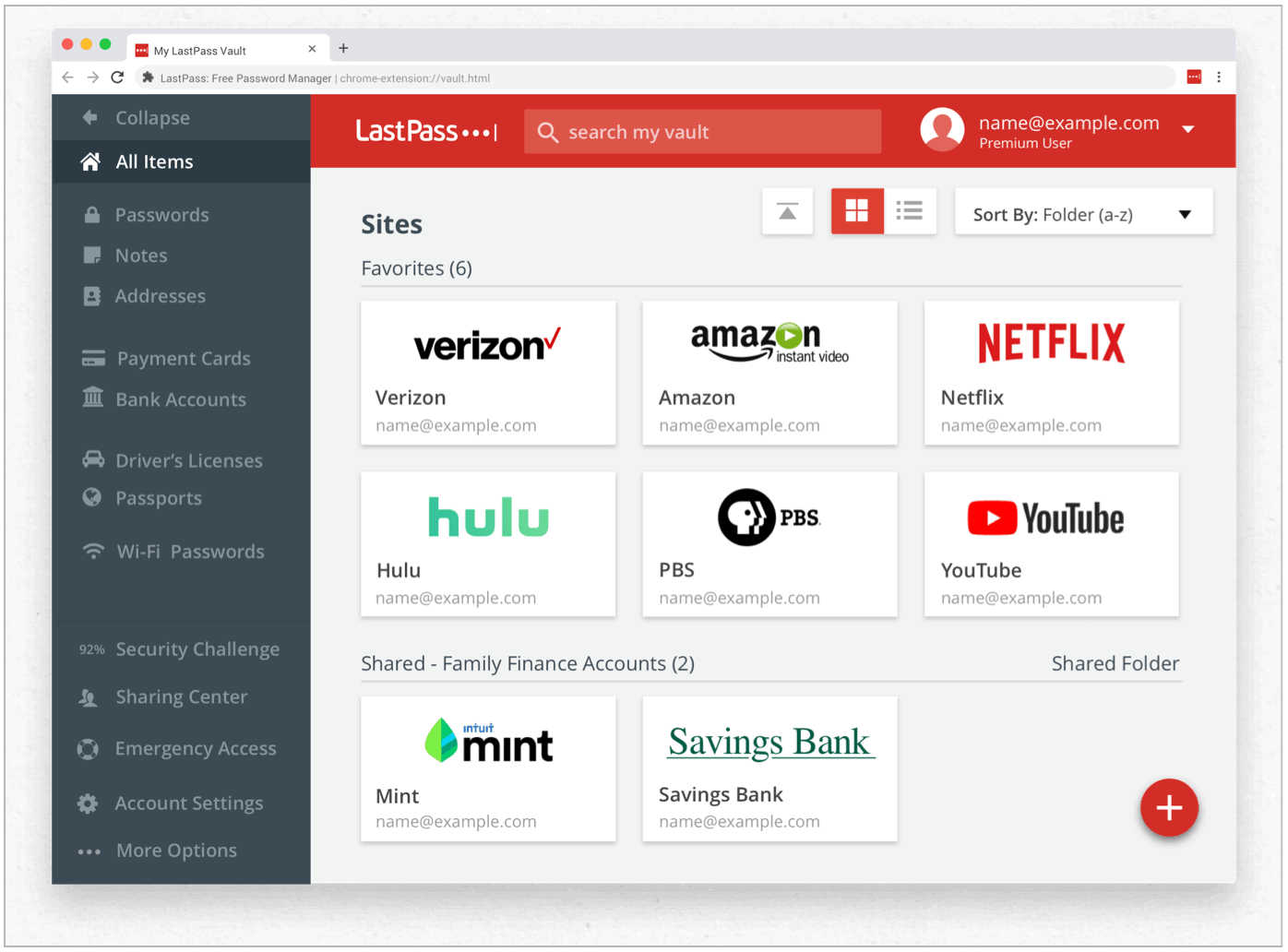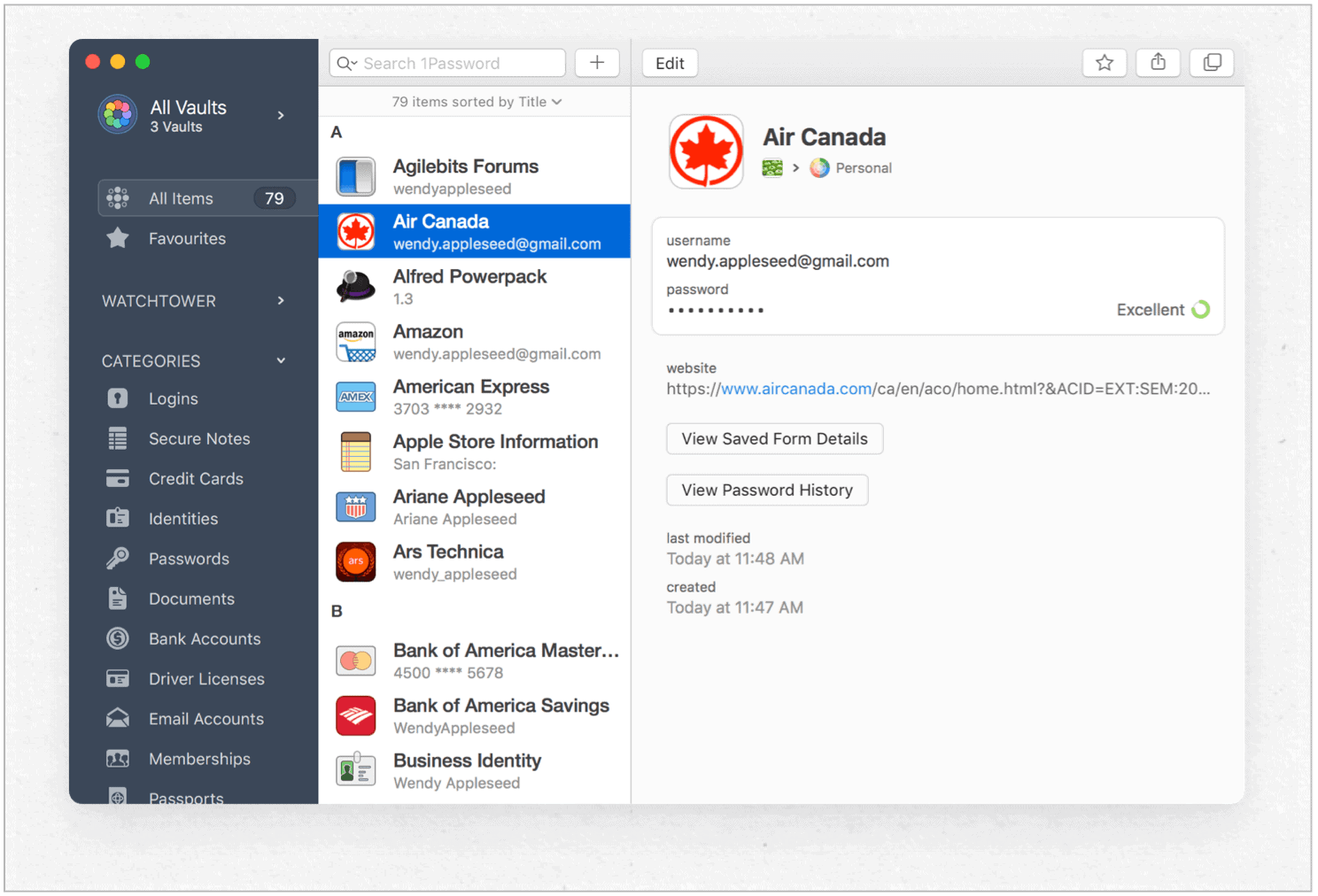Beyond iCloud Keychain, Best Ways to Save Passwords on Mac

Apple’s iCloud Keychain is a secure online location where you can save personal information. But there are alternatives to consider, too.
User names and passwords are necessary evils that each of us experiences whenever we go online. Keeping track of that information and others, including credit cards, Wi-Fi passwords, and more, across multiple Apple devices is easier, thanks to iCloud Keychain. Thirty-party solutions exist, however, including those below.
What is iCloud Keychain?
As previously noted, Apple’s iCloud Keychain is a secure online location where you can save personal information. Perhaps most importantly, it remembers this information so you can auto-fill content across the web and apps such as usernames/passwords, credit cards, and social log-ins. You can use iCloud Keychain to store Wi-Fi passwords and credit card information.
iCloud Keychain information is protected with end-to-end encryption, Apple’s highest level of security. Your data is protected with a key stored on your device, combined with your device passcode. Without these two pieces, no one can access this data, including Apple.
To date, iCloud Keychain simply doesn’t offer many of the tools found on third-party solutions. However, this is slowly beginning to change. For example, across macOS and iOS/iPad, iCloud Keychain now sends out alerts whenever any saved passwords might have been compromised in a data breach. It also reminds you when you’ve used the same password in multiple locations. When doing so, it also makes it simple to change the password, thereby resolving the issue.
Why Choose an Alternative?
The biggest reason not to use iCloud Keychain to collect your passwords and other personal information is if you also use non-Apple devices, such as Windows or Android. If this is the case, you probably should consider a solution that works across multiple platforms.
There’s no perfect password collection solution. And yet, three titles get very close. Here’s a look at each one of them and the pros and cons of each.
LastPass


You won’t find a more complete online password manager on the market than LastPass, which is now owned by LogMeIn. Reasonably priced and available for multiple devices and platforms, the solution provides industry-standard 256-bit AES encryption and PBKDF2 SHA-256.
Offering a thorough way to store digital recordings, including usernames/passwords, insurance cards, memberships, Wi-Fi passwords, and other notes, LastPass calls itself the “Auto-pilot for all your passwords.” It also contains a built-in password generator that creates long, randomized passwords, and dark web monitoring, which offers alerts if your personal information is at risk. It also makes it simple to export and back up your LastPass Password Vault.
LastPass offers three membership levels, free, premium, and families. The first offers password management with access to all your devices, while the second provides multi-device password sharing with 1 GB of encrypted file storage for personal security. The family plan includes six premium licenses. New users always start with a 30-day free trial of the premium package. Business packages are also available.
Overall, LastPass is our favorite third-party password solution for Mac users.
Dashlane
Dashlane serves as an excellent alternative to LastPass and is noted for its clean interface and cross-platform compatibility. Its basic functionality, when compared to both LastPass and 1Password, is strikingly similar. It’s with the extras where Dashlane requires a second look. Dashlane, unlike LastPass, offers extras like VPN for Wi-Fi protection and credit monitoring. For these, you must purchase a premium or premium plus package. Family and business plans are also available. The VPN does an admiral job, as does Dashlane’s credit monitoring. However, you’ll find better solutions elsewhere from companies that more squarely focus on those features.
Dashlane also offers a free membership, although it includes limits not found on LastPass’s version. In other words, if you’re looking for a free solution, stick with LastPass.
1Password


Long a popular choice with many users, 1Password offers apps on Mac, Windows, Android, Linux, and Chrome OS. With two-factor authentication, 1Password is one of the most secure solutions available.
As we noted in 2019, 1Password is easier to use than ever before, thanks to a significant update that streamlined the process across all supported platforms. Drag and drop tools, for example, means you can now directly information into websites and programs without needing an extension. The service’s password vaults have also been improved, making searches much easier to perform.
Unlike the alternatives mentioned above, 1Password doesn’t offer a free subscription plan. Instead, you get to choose from a paid regular and family plan. Each offers unlimited passwords, items, and 1 GB of document storage. Either membership comes with a free 30-day trial.
Summary
For most users, we recommend LastPass as your iCloud Keychain alternative. The free plan is second-to-none, and you won’t feel strong-armed to try one of the premium packages. If you do, however, you’ll find feature-rich plans that check all the boxes. We aren’t sold on Dashlane’s extra features, mainly because better options are available elsewhere. 1Password is another solution worth considering, especially with last year’s improvements. Still, there’s no free version, which is something you must consider.







